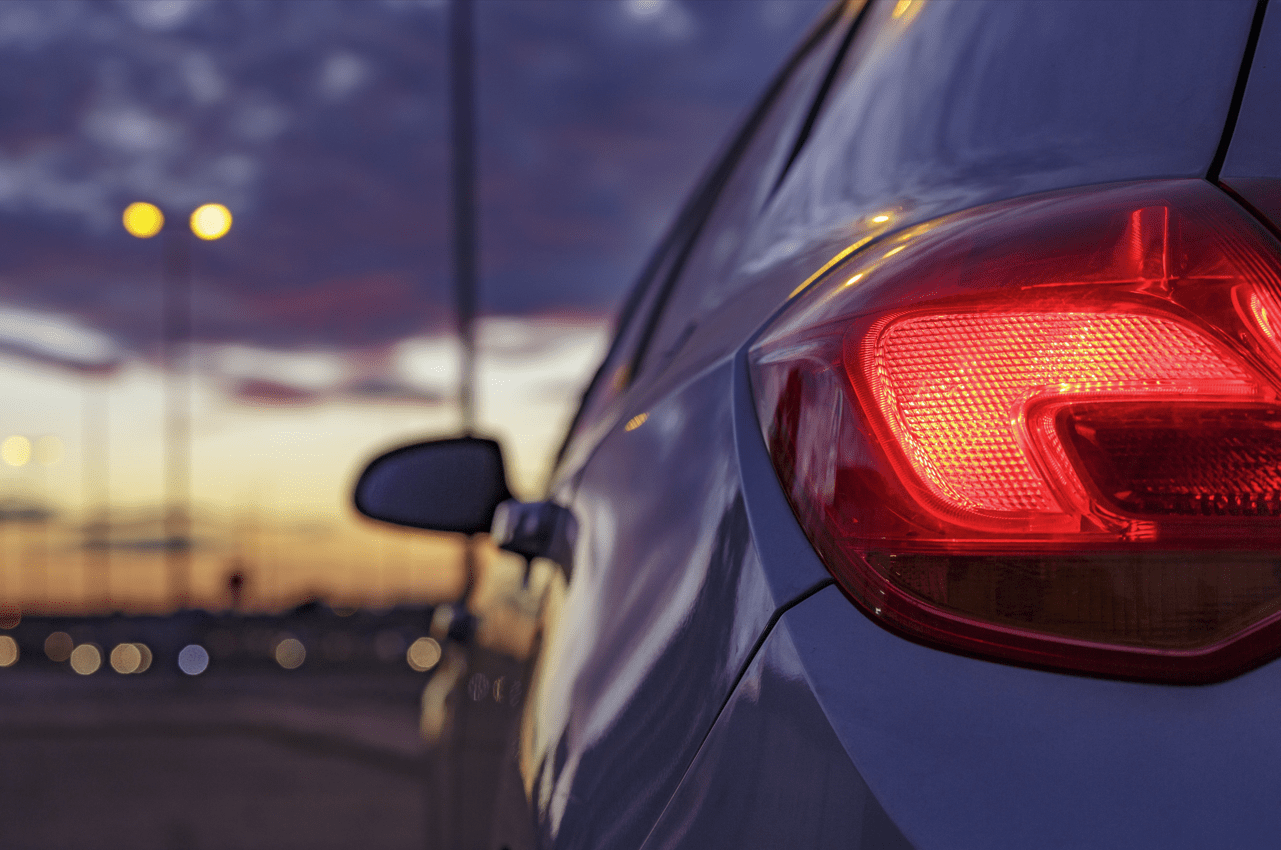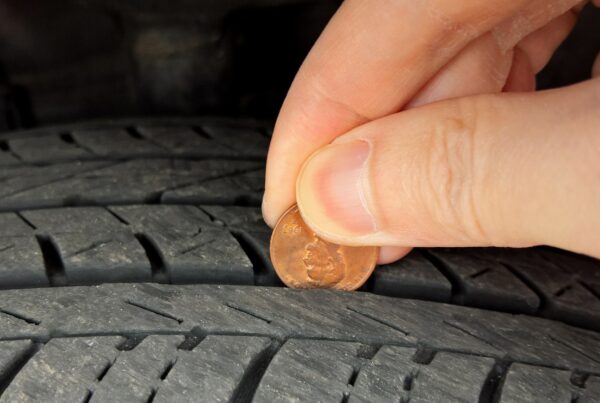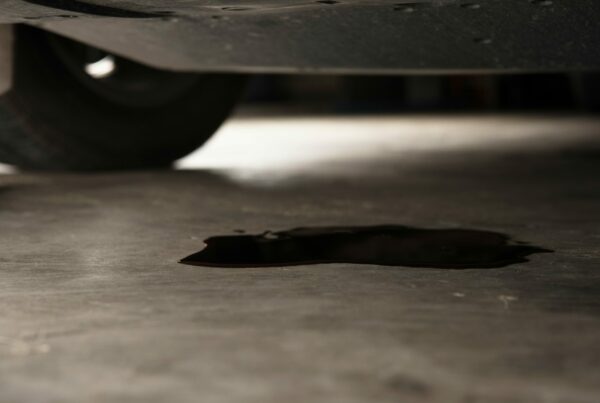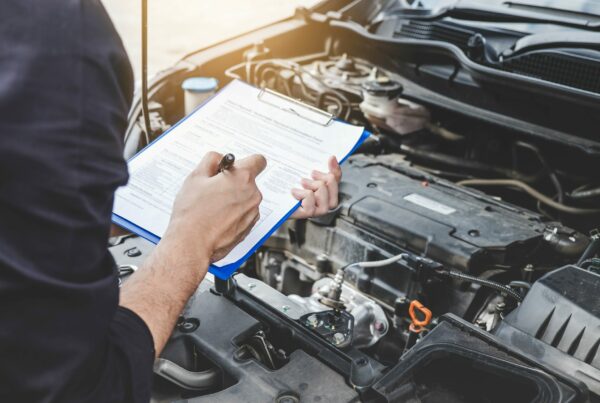Any unfamiliar sound or feeling from your car can be alarming, especially if you’re unsure of the cause. Shaking and braking problems can be difficult to identify because there are so many potential causes. Your car might shake when you hit the brake pedal for many reasons, from tire problems to disc rotor issues.
No matter what the cause, it’s time to get your car serviced if you notice shaking when you brake.
Reasons Your Car Might Shake When You Brake
Figuring out the cause of the issue is best left to a professional, but you can help them narrow it down by having answers to the following questions before you head in:
- When does your car shake?: Does your car shake more at certain speeds or when you brake downhill? Do you notice it more when idling in park or with your foot on the brake?
- Where is the shaking?: Do you notice your car shaking more from the front or the back? Is it the whole car, the steering wheel, or the brake pedal itself?
- Do you hear any sounds?: Do you hear squealing, grinding, clunking, or other sounds accompanying the shaking when you hit the brakes?
- Are there any other problems?: Is your car leaking any fluids? Have you noticed any new smells? Is your car pulling to one side?
Knowing the answers to these questions will help your technician diagnose any problems with your car. Below are other common issues that can cause your car to shake when you brake.
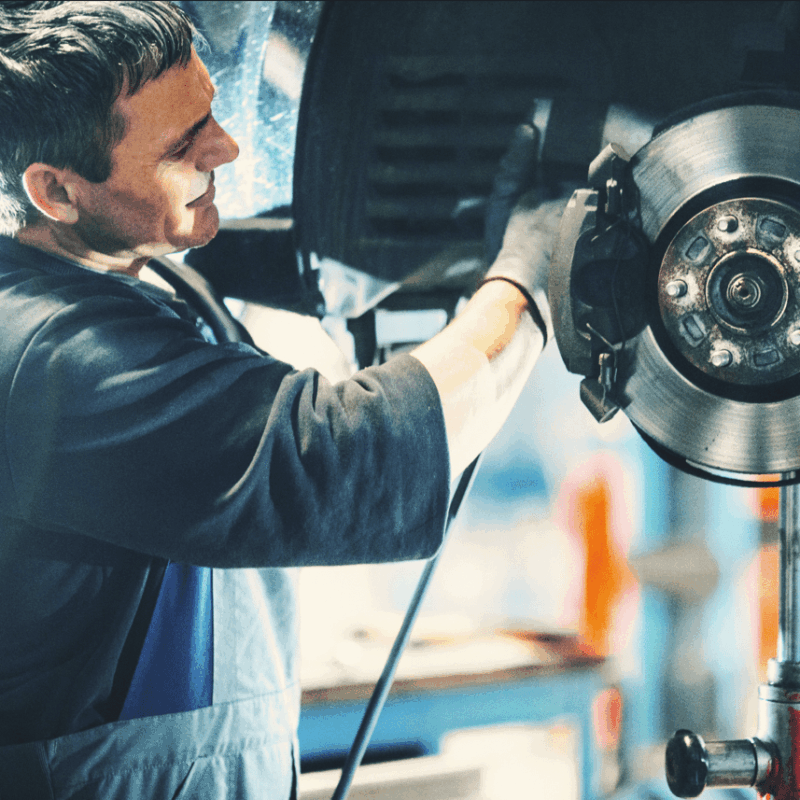
Misaligned Tires
The first thing you should check if you notice your car shaking is your tires and wheels. Tire issues are one of the most common reasons cars shake. This can happen if your wheels are out of alignment or one of your tires is unbalanced.
If you feel the shaking coming from your steering wheel, your front tires are more likely to be the cause. If you feel shaking coming from your seat or the entire car is vibrating, your back tires are probably the culprit. Usually, if your car is shaking because of your tires, you will notice it at high speeds, typically 50 to 60 mph. If you notice shaking more often at low speeds, or it only occurs when you brake, the problem is probably not your tires.
Worn Brake Pads
Thin or worn-out brake pads can cause your car to shake when braking. Brake pads are the component of your braking system that create friction with your brake disc to slow you down. It can be difficult to tell if your car is shaking because of your brake pads without having a professional inspection, but there are some signals you can look for that might indicate a brake pad issue.
In general, brake pad issues come with sounds like squeaking or grinding. You may also notice that your car takes longer to stop and slow down. If you’re having these symptoms and your car shakes when you hit the brake pedal, it’s likely time for new brake pads.
Brake pads typically need to be changed out every 20,000 to 70,000 miles, depending on the manufacturer, the size of your car, your driving style, and your local climate. To ensure your brake pads and other components of your brakes are in good condition, we recommend getting a brake inspection every 12,000 miles.
If you’re past due for new brake pads, it’s important you take your car in right away. Braking on worn brake pads can cause other issues with your braking system that are more dangerous and expensive to fix.
Damaged Brake Calipers
Issues with brake calipers can also cause cars to shake when braking. Your brake calipers are the part of your brakes that carry your brake pistons and pads. While uncommon, brake caliper damage does happen, so it’s a good idea to be aware of this potential problem if you are experiencing braking issues.
If you’re experiencing a brake caliper problem, you might also notice your vehicle pulling to one side, leaking fluid, or making metallic scraping sounds.
Typically, caliper issues arise if you’ve been driving on worn brake pads or using warped rotors. Because of this, if you suspect you’re having caliper issues, you should be prepared to replace other brake components as well as your calipers.
If you believe your car is shaking because of a caliper problem, it’s vital that you get your vehicle to a mechanic immediately. Broken brake calipers can cause your car to drive in unpredictable ways, which may result in an accident.
Brake Disc or Rotor Needs To Be Replaced
The brake disc (often called a rotor) is a portion of your brake that works with your brake pads and tires. If you notice your car vibrating when you brake, you might have a problem with your brake disc.
Some mechanics recommend replacing your rotors when replacing your brake pads, while others may tell you that leaving them alone is fine. Whether or not your technician recommends you change your rotor depends on how worn it is and the age of your vehicle.
Issues with the brake disc often result in vehicle vibrations. You might have rotor issues if your steering wheel shakes when braking. You might also notice squeaking, grinding, or squealing sounds.
What You Should Do if Your Car Shakes When You Brake
You should consider it a significant safety concern any time you have trouble with your brakes. Ignoring brake issues can often cause them to worsen, resulting in a more expensive fix down the road.
If you notice your car shaking when you hit the brakes, you should take it to a mechanic as soon as possible. At Auto Plus, we do it all! We can make sure your car is safe and your brakes are well cared for before you take your car back on the road. Make an appointment at either Auto Plus locations today.

